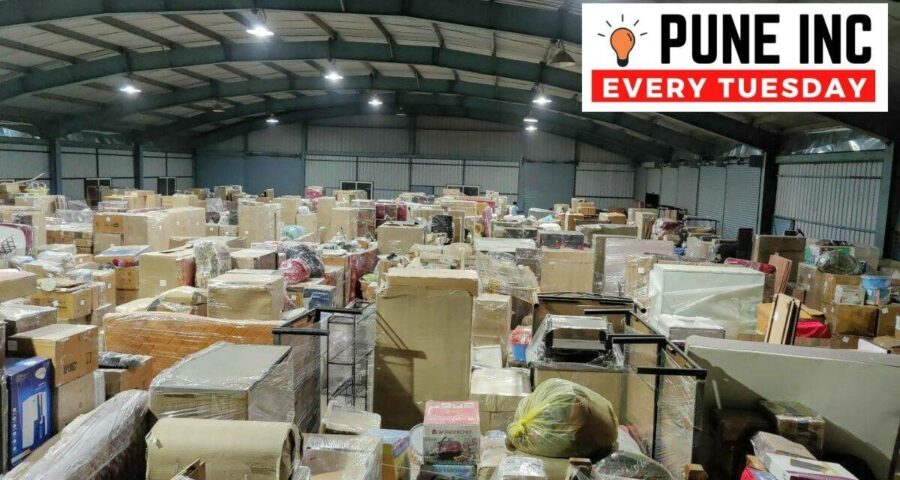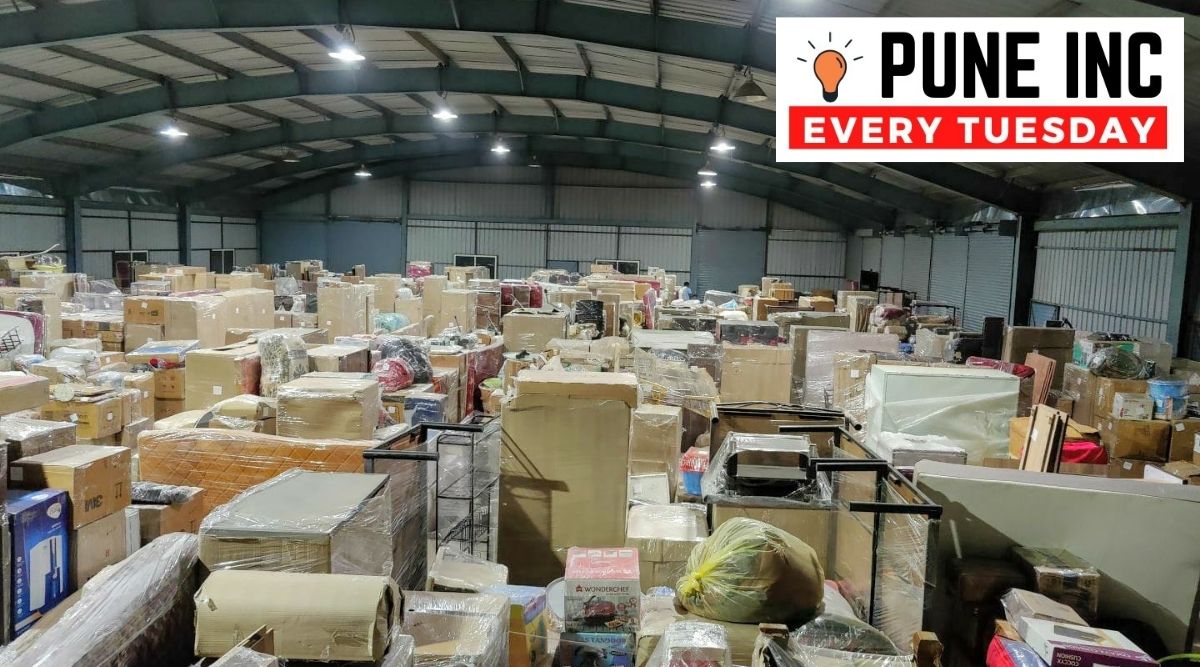Since it opened its first 5,000 sq ft warehouse in Pune in 2015, StoreKaro has graduated to six warehouses in Mumbai and four in Bengaluru, one in Hyderabad besides the spread in Pune. The number of customers, 1,500 in the first year, is now more than 4,500.
Next month, Pune startup StoreKaro will open its 18th warehouse in the city to cater to the rising demand from commercial and household clients. Techies who are moving to other cities or countries, event management companies with large boxes, small shopkeepers with their inventory and fashion designers with their products make up a large section of StoreKaro’s client base; the other segment caters to major businesses who want a warehouse for goods that can be delivered quickly to different parts of the city in this age of online shopping.
The result is that, since it opened its first 5,000 sq ft warehouse in Pune in 2015, StoreKaro has graduated to six warehouses in Mumbai and four in Bengaluru, besides the spread in Pune. Two months ago, it opened in Hyderabad also. The number of customers, 1,500 in the first year, is now more than 4,500. StoreKaro is one of the few businesses in the city that offers self-storage facilities.
“In a traditional warehouse, a small shopkeeper might not be able to find storage if he needs around 500 sq ft and cannot afford to own the complete premises of 2,000— 5,000 sq ft. The business model of StoreKaro is such that small as well as big enterprises and individuals can find what they are looking for. If, after some time, they think that they need more space, we can provide it and charge for that. We are liable for their goods, they are responsible for the rent and all other services that they are taking from us,” says Richa Singh, founder of the company.
Singh was inspired to set up the company when she had to shift to the UK after marriage and had to give away her belongings to friends as there was no affordable option to store them in Mumbai, where she was living and working in the IT sector at the time. “Sometimes, giving away stuff is emotional as there are memories attached to it,” she says.
As a woman in a traditionally male bastion, Singh made professionalism and efficiency her buzzwords. StoreKaro began to offer not only storage facilities but also packing and moving as well as last-mile delivery of goods. Small event management companies were among the first to find this profitable, as they saved on transport costs and were assured the convenience of having their products transferred to venues across the city, packaged and stored back in the warehouse. Today, this feature is a hit with delivery businesses that need to get things to customers within a day. “This is one of the reasons our warehouses are located in the city. We need to be among people who can access the warehouse easily,” says Singh.
– Stay updated with the latest Pune news. Follow Express Pune on Twitter here and on Facebook here. You can also join our Express Pune Telegram channel here.f
After two years, Storekaro was a full-fledged fulfillment and distribution centre. “A customer rents the space for a few months and pays monthly storage rent for it. It becomes a consistent revenue channel. For the next few months, we don’t need to look for new customers for that space as it is already occupied,” she adds.
When the Covid-19 pandemic began, for four months, there were no commercial storage customers. Even “commercial service customers” converted into “simple storage customers”, because they no longer needed logistics service or transport of goods as no event was happening that time. “For four months, our transport facility was used by clients removing their goods. That’s when the household customers came calling with boxes of personal things to be stored. After four months from the lockdown, everything started selling online and, once again, we started getting commercial customers. This time, they wanted deliveries to be done by us,” says Singh.
Before the pandemic, they had one storage facility that was working as a fulfilment centre. “Now, we will have 5-6 fulfilment centres for all big brands and startups,” says Singh.
Source: Read Full Article


